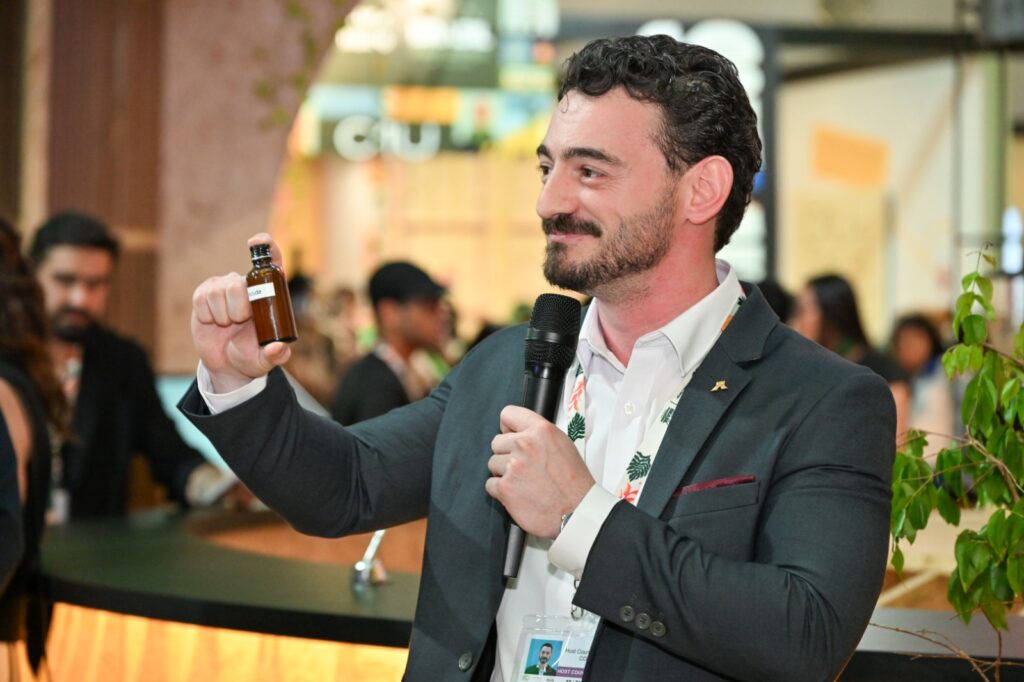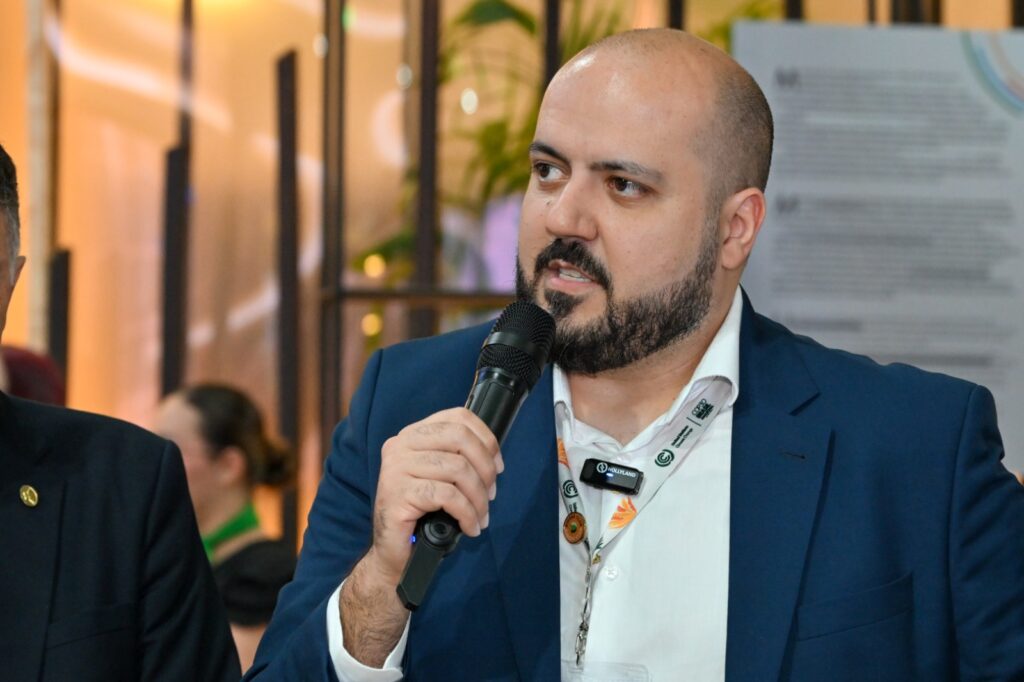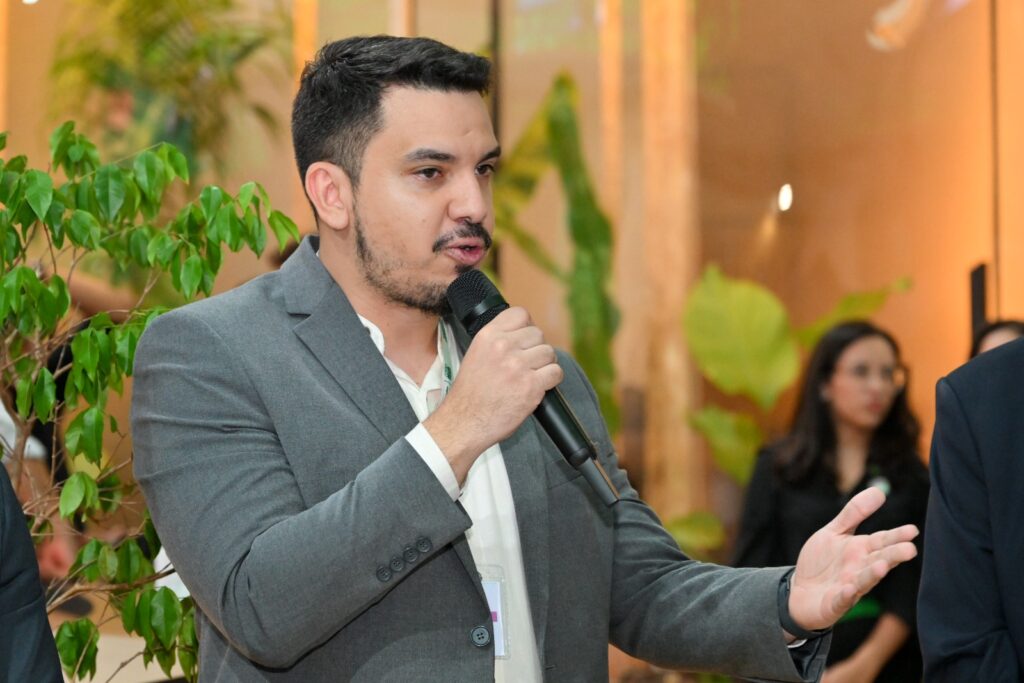Material showcased in Belém is the first fraction ever produced in Brazil and the first in the world using this production method
Itaipu Binacional, CIBiogás, and Itaipu Parquetec presented, on Friday afternoon (14th), the first sample of bio-syncrude produced at the plant installed in the industrial area of the hydroelectric facility in Foz do Iguaçu (PR). The presentation took place at the Binational’s booth at COP30 in Belém.
Bio-syncrude is the base for synthetic fuels that can replace fossil fuels, such as bioethanol, green diesel, or sustainable aviation fuel (SAF). It is produced by combining green hydrogen and biogas—both also produced in Foz do Iguaçu.
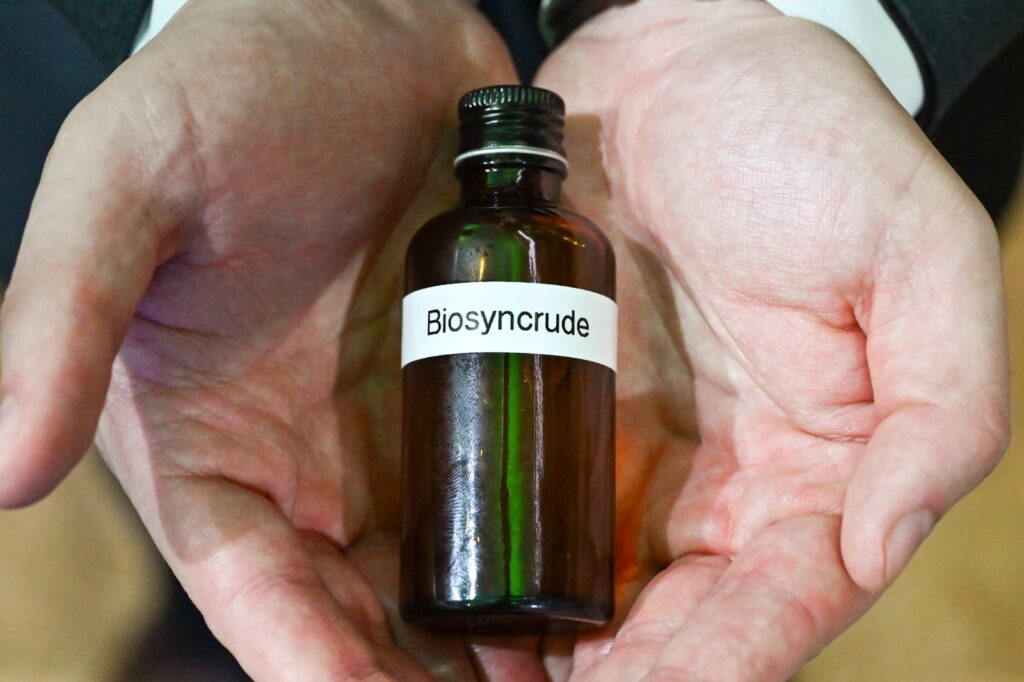
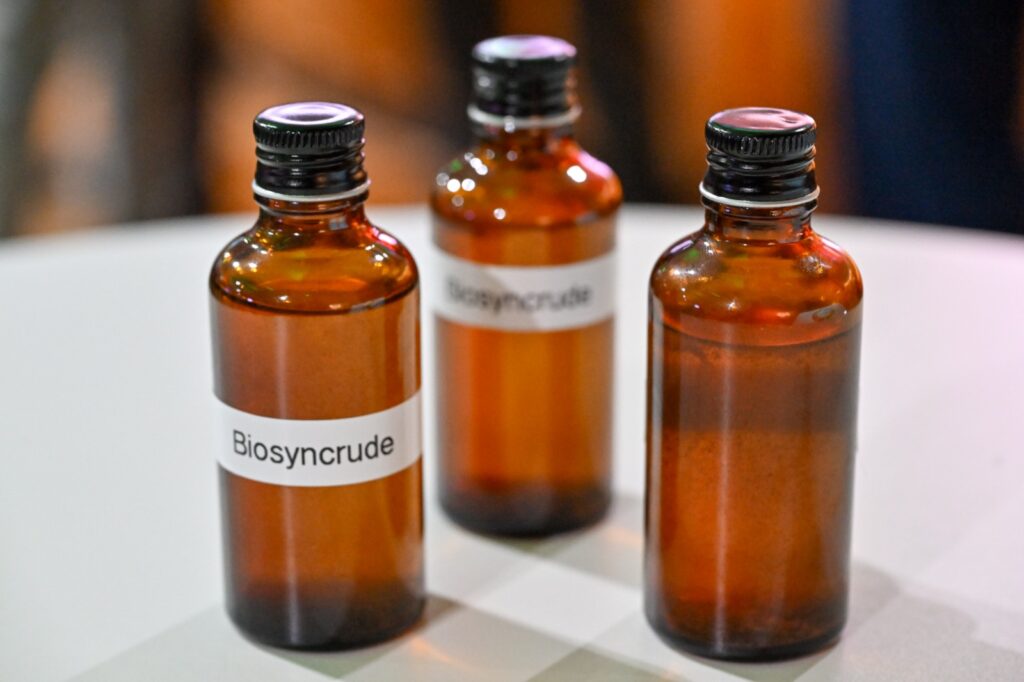
According to Felipe Souza Marques, CIBiogás president, the material presented in Belém is the first fraction produced in Brazil and the first in the world using this production method, which involves biogas dry reforming and Fischer–Tropsch synthesis, a process that converts gas into liquid hydrocarbons. “Today, with this sample, we are opening a new phase for the Brazilian biogas market, which is also groundbreaking globally, producing liquid fuels from gas,” he highlighted.
For Iggor Gomes Rocha, administrative director of Itaipu, the research and production of new fuels that allow the transition away from a fossil fuel matrix is one of the key elements of the energy transition—a topic strongly advocated by the Binational. “It took almost 20 years of investment and research for this sample to become possible. Presenting it now at COP30 signals that the research has reached a result. And it’s something we must defend as public policy so it can grow into a new energy matrix for Brazil.”
The demonstration unit in Foz do Iguaçu was installed through the H2Brasil project—implemented by the Deutsche Gesellschaft für Internationale Zusammenarbeit (GIZ) in partnership with the Ministry of Mines and Energy (MME) and funded by Germany’s Federal Ministry for Economic Cooperation and Development (BMZ). Alongside Itaipu, CIBiogás, and Itaipu Parquetec, the Araucária Foundation and the Federal University of Paraná (UFPR) are also part of the initiative.
According to Eduardo Miranda, director of business and entrepreneurship at Itaipu Parquetec, which supplies the green hydrogen used to produce the bio-syncrude, decarbonizing aviation is an urgent necessity, and the joint efforts and investments made by Itaipu enable the creation of an ecosystem dedicated to that purpose. “This once again places Itaipu Binacional, Itaipu Parquetec, and CIBiogás at the forefront of innovation and global leadership in this field.”
The bio-syncrude demonstration unit in Foz do Iguaçu received an investment of approximately 1.8 million euros and has the capacity to produce up to 6 kg/day
